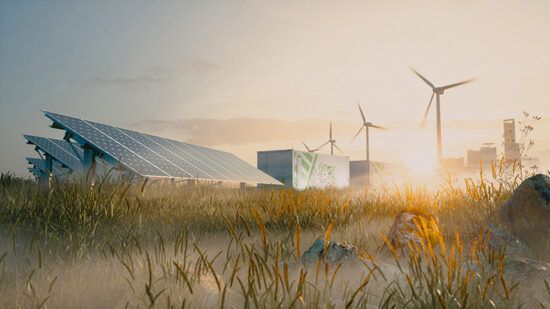Renewable energy trusts have been upgraded by broker Stifel following the “savage de-rating” in the sector
A note released by Stifel said it had upgraded the sector to ‘positive’ from ‘negative’ and highlighted that following the recent sharp falls – seen across stock markets worldwide as a result of the covid-19 pandemic – all renewable energy trusts are trying on a discount to NAV.
It added the broker had reviewed leverage levels, as equity issuance is not currently possible due to the “dilutive impact of issuing at a discount to NAV”, and the outstanding commitments that need to be financed in the future and concluded that debt facilities are “robust” and issuance should resume when markets normalise.
“Following the savage de-rating, the sector looks attractive in terms of valuations and robust in terms of dividends compared to many equity sectors. The wind will blow and sun will continue to shine. We upgrade the sector to positive,” the note said.
The firm had previously held a ‘negative’ on renewable energy trusts amid concerns on falling power prices and high premium valuations to NAV, which has clearly dissipated.
Recently, the Associaiton of Investment Companies (AIC) said Renewable Energy Infrastructure sector, which consists of 13 investment companies, was the best performing sector out of all of the investment company peer groups in the recent volality.
While the FTSE 100 and S&P 500 posted losses of 27% and 13% respectively over the six weeks to 13 March, the Renewable Energy Infrastructure sector lost 3.2% during the same period.
Annabel Brodie-Smith (pictured), communications director of the AIC, said the assets in renewable investment companies invest in solar parks, wind farms and battery storage, which have a lower correlation to the wider stock market and have been “highly prized” in recent years for their strong yields.
She added: “Due to the intense demand for income amongst investors, investment companies in the Renewable Energy Infrastructure sector have tended to trade at large premiums. Whilst a discount alone is never a good enough reason to invest, the recent share price falls could be an opportunity for investors with a long term horizon.
“It’s important to remember as well that most investment companies in this sector value their portfolios quarterly, so many of the discounts will be based on net asset values that predate the last few weeks of market turmoil, so they reflect a valuation lag as well as a downturn in sentiment.”
Tim Cockerill, investment director at Rowan Dartington, said his team have been investing in renewables for some years now, for income reasons.
“The dividend stream is robust because of the long term contracts and pricing guarantees to some extent. The Stifel comments fit with our own thoughts and I don’t see any particular risk, but like all ITs, especially of this nature, investors need to know what they’re buying. This is an area which is going to see substantial expansion of capacity, globally governments are supportive of renewables and with an urgent need to address climate change the energy infrastructure of all countries needs to rapidly and radically adjust.
“In African countries, solar is cheap and easy to install and for others replacing existing energy sources with renewables is also cheap and easy.”








